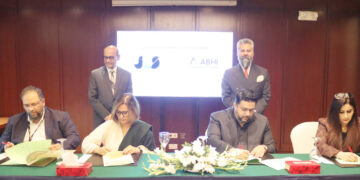By: Kim Min-hyuk.
A total of 193 UN member states undergo peer reviews of their human rights situations every four and a half years through the Universal Periodic Review (UPR) system. Each state assesses the human rights conditions of approximately 42 countries annually, identifying areas of improvement and making recommendations. The reviewed country then reports on the actions it has taken to improve the situations to the Human Rights Council until its next UPR. During North Korea’s third review, with its fourth review scheduled for Nov. 7th, the international community issued a total of 262 recommendations to North Korea. But the regime selectively accepted only 132, and explicitly rejected around 130. It accepted recommendations that posed little burden, such as ‘strengthening international cooperation on human rights’ and ‘striving to protect vulnerable populations,’ while promptly rejecting more sensitive issues, such as ‘closing down political prison camps’ and ‘banning forced labor.’
Then what has happened to the promises North Korea made to the international community five years ago regarding the improvement of human rights for its people? In conclusion, North Korea has consistently disregarded even its voluntary commitments, and compared to the previous reviews, the human rights situations has worsened due to various inhuman measures implemented by the regime.
North Korean’s rights to freedom have deteriorated since the COVID-19 pandemic. The three laws enacted by the regime to control ideology and restrict the flow of foreign information (Reactionary Ideology and Culture Rejection Act, Pyongyang Cultural Language Protection Act and Youth Education Guarantee Act) have severely limited individual autonomy and expression. Additionally, frequent execution by firing squad based on the clause which stipulates that “Those who speak South Korean language or produce and disseminate South Korean content will be sentenced for life or be executed.” poses a direct threat to right to life as well.
Regarding the rights of food, the rationing system has collapsed, and the ongoing exploitation by the ruling class is prevalent. Not only that but there remains a disparity in access to food between key figures, such as party cadres, and ordinary workers. And regarding health care, the free health care system has become nominal and there is an extreme inequality in health care benefits, which have led to people relying on drugs and folk remedies.
Regarding the rights of vulnerable populations, including women and children, North Korea’s women in the workplace face barriers to promotion, irrespective of their qualifications or performance. Children are often mobilized for the collection of scrap metal and compost, as well as for rice planting. Moreover the regime has covertly collaborated with China to repatriate North Korean female defectors and children residing in China. Those retumed are labeled as “traitors to the motherland”, imprisoned in political prison camps or re-education centers, with some subjected to public executions as examples to others.
The UPR serves as a vital opportunity and tool for addressing human rights issues in North Korea. North Korea’s commitment to implementing even half of the international recommendations appears futile, as the livelihoods of its people have worsened and regime repression has intensified since the last review. The fourth human rights review of North Korea is scheduled for November. The international community should view this upcoming review as an opportunity to raise the regime’s awareness of human rights and promote human rights of its people, while fully acknowledging that such claims are merely hollow promises.
Advertisements




















